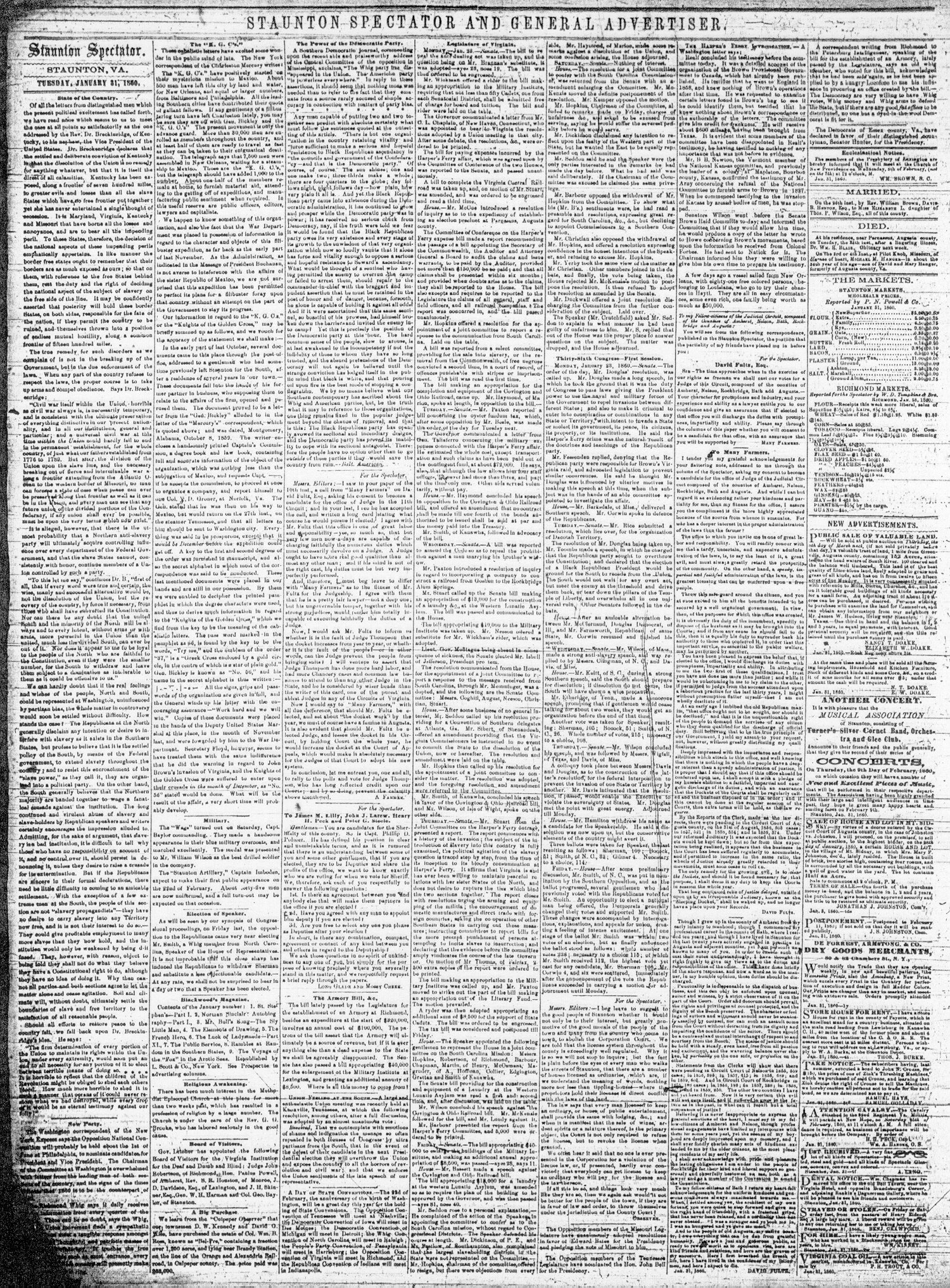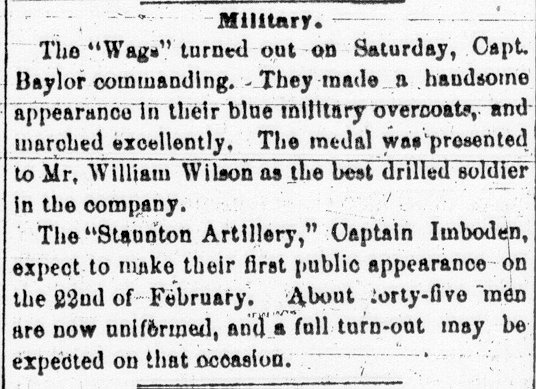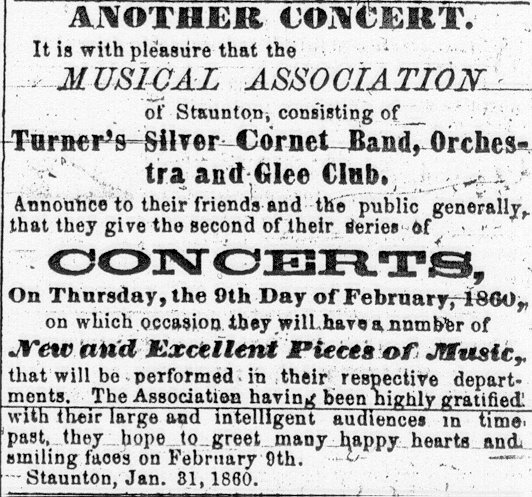|


Staunton Spectator: Jan. 31, 1860, Page 2

|

Staunton Spectator: Jan. 31, 1860, Page 2
|
|||||||
|
Column 1 (Head): The Spectator's main editorial appeared immediately below the date in column 1. Here, the editor was at his most partisan. While the editor might choose to discuss local, state, or international affairs, national politics was the typical subject matter. Conservative in its politics, the Spectator followed the positions of the Whig, or as it was known in the South in the late 1850s, the Opposition party. In the election of 1860, the paper proudly endorsed the Constitutional Union party ticket of John Bell and Edward Everett (the Constitutional Union party, dedicated to saving the Union from sectional strife, received much of its support from Southern Whigs), believing that a victory by either the Democrats or the Republicans could only exacerbate sectionalism. On January 31, for example, under the heading "State of the Country," the Spectator's lead editorial discussed a letter written to John C. Breckinridge, vice-president under James Buchanan (and later the presidential nominee of the Southern Democrats), by his uncle in Kentucky. The Spectator praised the politician's relative for urging Breckinridge to keep a cool head on the issue of expansion of slavery into the territories, rather than participate in escalating sectional tension. As the Spectator asked: This editorial was somewhat unusual for the columns of the Spectator--not in its political stance, but in its subject matter. Generally, the Spectator avoided direct discussion of slavery, believing the issue caused more political turmoil than it was worth. |
 |
|
Column 1 (Foot)-Column 3: A mixed collection of material appeared below the lead editorial in column 1 (if there was space available) as well as in all of columns 2 and 3. Generally, the items here comprised some combination of additional editorial commentary, letters to the editor, and announcements of upcoming local happenings or reports on those which had already occurred. The heads of columns 2 and 3 tended to be national or international in scope. On January 31, for example, the head of column 2 described the enigmatic Mexican trip of a group known only as the "Knights of the Golden Cross," while the head of column 3 carried an item reprinted from the Baltimore American criticizing the Democratic party. |
|
|
Items of state or local interest usually appeared farther down the page. Typically, these dealt with local political activities (in the Spectator's pages, of course, these were primarily Whig activities), religious affairs, military gatherings, local crime, and achievements or appearances by local notables. On January 31, the Spectator described the appearance of the "Wags" (West Augusta Guards), a local militia unit led by Capt. Baylor, and announced the scheduled appearance of another unit, the "Staunton Artillery," led by Capt. Imboden. Also in the Spectator's columns were items describing increased membership in the Methodist Church under the leadership of Rev. G. G. Brooke, and a letter to the editor asking candidates for sheriff to declare publicly that they had made no deals with the current deputies to secure election. |
 |
|
Columns 4-5: When Congress and the state legislature were in session, their proceedings were published in these columns (though they could appear as early as column 3). When these bodies were in recess, columns 4-5 often carried reports from local "correspondents," frequently in the form of letters to the editor, on local meetings of political clubs, militia gatherings, Sunday school picnics, and the like. Just as on page 1, space at the bottom of columns was filled with aphorisms and short jokes, on page 2 (especially in columns 3-5) space was filled with brief items of political interest from other states, or with tidbits of national political affairs. On January 31, for example, a piece in column 3 remarked that seven state political party conventions would be held on Washington's birthday, while column 5 noted that the Opposition members of the Missouri legislature nominated Edward Bates for president of the United States, while the Opposition in Tennessee nominated John Bell. Column 6 (Head): The head of column 6 often seems to have been extra space. Much of column 6 was usually filled with ads (see below), but when there were too few to fill the column, a letter to the editor or some other news item appeared as filler. This is not to say that the item was insignificant. On January 31, for example, the Spectator ran an item describing the proceedings of the federal committee investigating John Brown's raid at Harper's Ferry, as well as a lengthy letter to the editor from David Fultz announcing his candidacy for circuit court judge. If advertising space was needed in column 6, however, the Spectator always moved (if it did not displace altogether) these items elsewhere. |
|
|
Column 6 (Foot)-Column 7: The remainder of column 6 and all of column 7 most frequently carried advertisements. Generally, these ads fit into a number of categories. Some were simply for local merchants, like those appearing in columns 1 and 2 of page 1. Others, if local in origin, were announcements for land auctions, estate divisions, public meetings and events, upcoming militia gatherings, and court proceedings, rather than conventional advertisements offering goods or services. Local marriage and death notices, candidate lists for upcoming local elections, and market prices for Staunton and Richmond might appear in these columns as well, though these more frequently appeared in the first few columns of page 3. |
 |